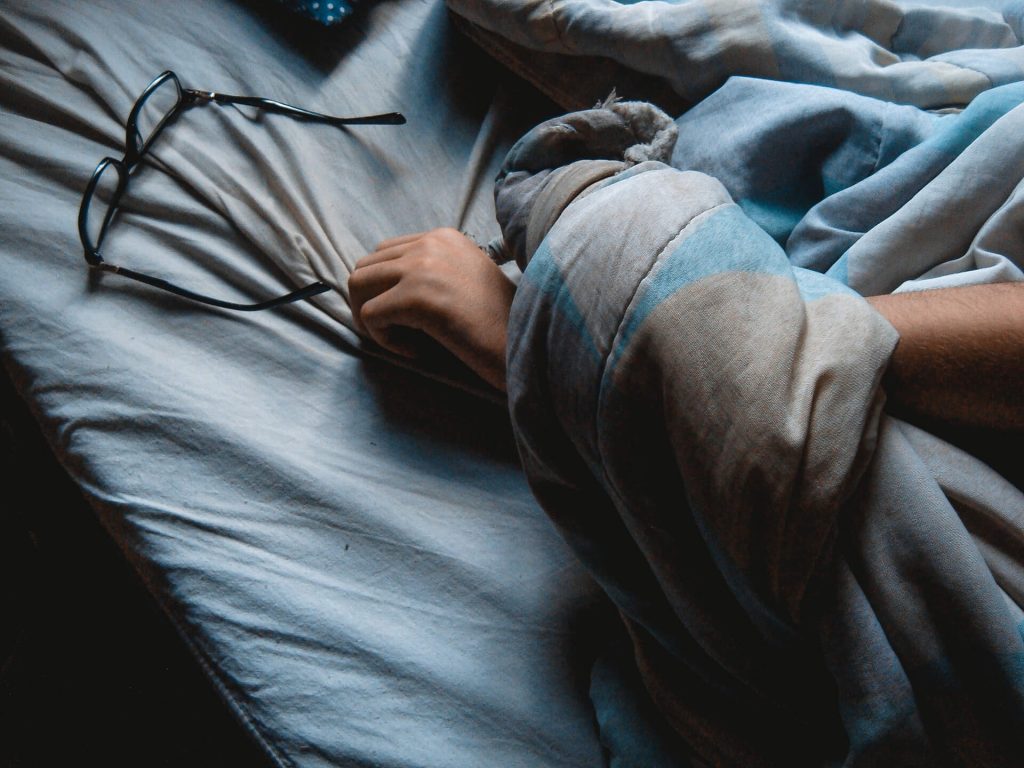
Although the principles of maintaining sleep hygiene seem to be obvious, the statistics are unalterable. Every third person in the world is suffering from sleep disorders, and the trend is definitely worsening. However, the primary source of information is the internet, where the facts may be unreliable which is why we’ve decided to collect and collate all the medically-confirmed factors that affect the quality of nighttime rest.
Light
Light is our body’s natural regulator of the circadian rhythm of sleep and wakefulness. It affects the secretion of melatonin by stimulating the suprachiasmatic nucleus. All light or dark stimuli are transmitted from there through the retina and synchronized with the 24-hour solar day. The supraoptic nucleus controls the time of hormone secretion, which peaks in production between 2 and 4 in the morning, and the lowest concentrations occur during the day. That’s why light therapy can be a non-invasive and cheap way to fight insomnia or sleep disorders. In the bedroom, we should limit the light access to a minimum, to increase the production of hormones, mainly melatonin, necessary for the proper functioning of the body at night. Interestingly, light can also affect brain activity and hormone secretion by other means. Morning light exposure modulates the secretion of ghrelin and leptin, which control hunger and sleep. This is why people with sleeping disorders often have bouts of night hunger.
Noise, temperature, and humidity
If you want to sleep well, you should also minimize the noise level that stimulates the nervous system and releases adrenaline, noradrenaline, and cortisol. Noise during sleep will worsen the sleep quality and result in morning tiredness due to changes in the natural phases of sleep. There is a reduction in the REM phase and an increase in the shallow sleep and awakening phase. Deterioration of sleep quality and morning irritability were observed among people who are exposed to traffic noise. Insomnia is also more frequent in people living close to expressways. It has also been proven that exposure to noise during the day worsens the quality of sleep at night.
Before going to bed, we should also pay attention to the surrounding temperature. If the temperature is too high or too low in our bedroom, this negatively affects the length of sleep, by extending the waking phase and shortening the REM phase. A temperature of around 19-20 degrees Celsius is considered to be neutral and beneficial.
Another important factor is humidity, which is affected by outside climatic conditions. The lowest humidity is observed in winter and the highest in summer. The optimal conditions to ensure premium sleep quality are a temperature range between 24-26°C (outside, not indoors) with a relative humidity of approx. 50%.
Food and drinks
Food affects our sleep mainly by altering the synthesis of serotonin and melatonin. Before bedtime, therefore, we should feel neither hungry nor too full. Avoid heavy food as well as spicy or sweet dishes at least two hours before bedtime. It has been proven that spicy food eaten during the day, for example, adding tabasco or mustard, lengthens the process of falling asleep and accelerates awakening. An increasing amount of research and evidence also indicates that lack of sleep affects our choices and dietary preferences. Tiredness increases the likelihood of eating energy-rich foods (such as fats and carbohydrates) and irregular meal consumption. This has a significant impact on the risk of obesity.
Contrary to popular opinion, we should avoid all drinks directly before going to sleep, including tea (due to its stimulating effect) or water with lemon. Caffeine, alcohol and sweet drinks have a particularly negative effect, even several hours before bedtime. It is recommended, however, to brew calming, or sleep-inducing herbs such as chamomile or mint, or drink warm milk. When it comes to infants, breast milk reduces the incidence of colic and prolongs sleep due to melatonin, which is passed along from the mother.
Bed, sex, and internet
A good sleep should be based on rituals – it is recommended to go to sleep tired and always at the same time, regardless of the day of the week. Dreaming will be stimulated by listening to relaxing music for 20 minutes before falling asleep or performing breathing exercises. In bed, we should avoid stressful events such as quarrels, reading emails or thinking about work. According to sleep hygiene, the bed is for sleeping and sexual activities and nothing else. Numerous studies indicate a direct connection between sleep disorders and television, internet or games. Using the internet in the bedroom contributes to a late-night sleep and waking late. It has also been shown that the use of mobile phones has an equally negative impact on sleep as television. Electromagnetic waves emitted by cell phones affect the encephalogram during sleep and hinder or even inhibit the secretion of melatonin.
You should also pay attention to the “headquarters” of sleep, the bed itself. Again, contrary to popular online advice, people with sleep disorders should not sleep on mattresses that are too hard. Bedding is also important. Some filling may cause allergic reactions. The latest method of fighting insomnia is gravity blankets, also called sensory blankets. These use a special batting which provides a calming and soothing effect on both children and adults.
Although all these factors which regulate favourable sleep conditions seem to be simple; they do need to be applied daily. So, fighting insomnia requires time, patience and persistence. Good luck!




